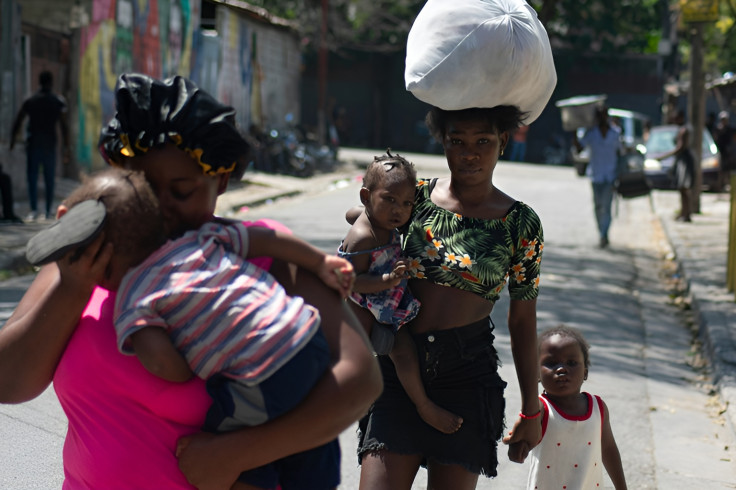
Argentine Armed Forces are set to join an ongoing security operation in the city of Rosario, aimed at bolstering the state's response to a surge in violence linked to drug trafficking. The escalation by armed gangs comes as similar situations unfold in other countries in the region, Ecuador and Haiti among them.
In fact, it is believed that a regional link was a catalyst of the latest bout of of violence in Rosario, which has seen four murders in less than a week. Last week, authorities published a photo showing a raid on prisoners in a local jail, which bore a resemblance to the practices carried out in El Salvador, which has forcefully cracked down on local gangs over the past years.
The operation in Rosario took place in early March, when law enforcement conducted a surprise search in four wards of a jail key to Rosario's drug trafficking networks, housing several hired gunmen and operatives from the city's criminal gangs.
The search took place shortly after a shooting incident on a bus transporting prison officers in the city, in which one person sustained a gunshot wound, and coincided with the implementation of new measures aimed at reining in on inmates ordered by Governor Maximiliano Pullaro.
"Their situation will only worsen," the governor stated in reference to inmates linked with drug trafficking in a social media post, which accompanied images of groups of shirtless prisoners seated on the ground, heavily guarded.
In recent days, gangs have gunned down a gas station attendant in a parking lot without saying a word, as well as two taxi drivers and a bus driver. They have also made death threats to a group of journalists from TN news channel led by Nelson Castro, as well as to Pullaro and his Minister of Security, Pablo Cococcioni.
In response, Argentine Security Minister Patricia Bullrich announced the implementation of extraordinary judicial measures and operations involving federal forces. Additionally, she has disclosed plans to present a "Anti-Gang Law" proposal to Congress, which she claims is modeled after similar laws implemented in Italy, the United States, and El Salvador under Nayib Bukele.
The recent escalation of violence in Rosario coincides with security crises elsewhere in the region. The most salient case at the moment is that of Haiti, where local gangs have seized control of nearly 80% of the capital city, Port-au-Prince. Prime Minister Ariel Henry said on Monday he will resign as soon as a transitional council is formed, a step local and international actors hope will be the first to start addressing the country's collapse.

Henry agreed to step aside during an emergency meeting in Jamaica, where US Secretary of State Antony Blinken pledged an additional $100 million to support the deployment of a multi national security force led by Kenya, an initiative that has encountered several roadblocks so far.
Ecuador has also experienced a surge in violence, including incidents where numerous prison guards were held hostage and armed individuals stormed a television station during a live broadcast. The country is under a state of emergency, with sustained operations aimed at cracking down on the gangs.
© 2025 Latin Times. All rights reserved. Do not reproduce without permission.







